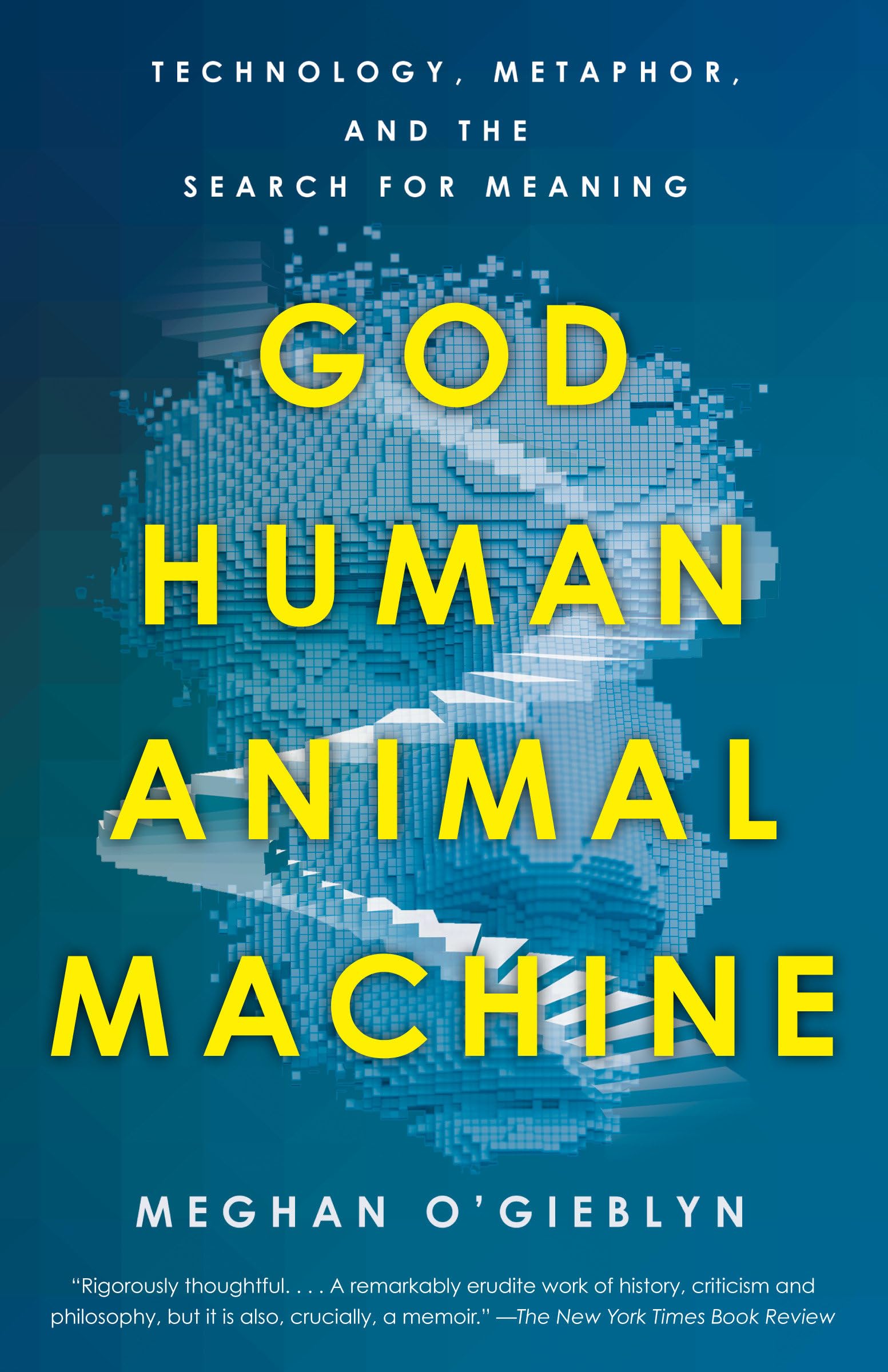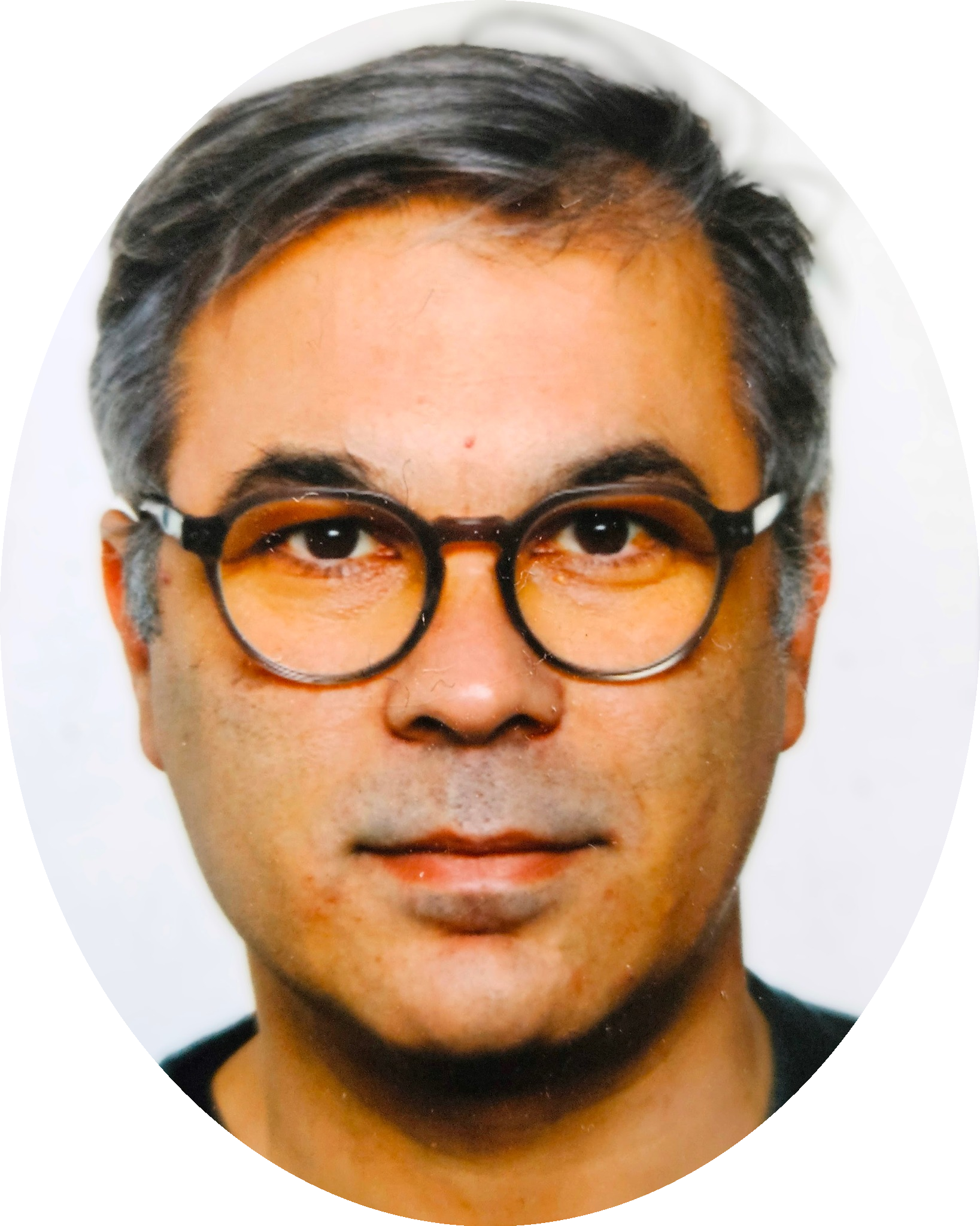Authors note: Originally published in Zygon® Journal of Religion and Science, Vol. 58, No. 4, December 2023, pp. 1001-1005. This review is part of a series of reflections on the intersection of technology and theology, inspired by my personal journey through Meghan O'Gieblyn's "God, Human, Animal, Machine: Technology, Metaphor, and the Search for Meaning". The insights shared here are deeply personal and reflect my own experiences and interpretations of the book's themes.
"God, Human, Animal, Machine: Technology, Metaphor, and the Search for Meaning" by Meghan O'Gieblyn is not just a scholarly exploration; it's akin to an intimate conversation with a close friend, discussing profound intricacies of our existence. Through its chapters, O'Gieblyn weaves an intriguing narrative that spans theology, technology, and existentialism, captivating readers with her deeply personal and conversational tone.
The text sets the stage with "The Soul of the Machine," dissecting the metaphorical interpretations of the soul and its historical significance. As the narrative unfolds, a pivotal revelation emerges: even as machines grow to emulate human functions, the intrinsic human quest for meaning remains undeterred. This quest, increasingly, gets concealed beneath layers of technological excellence, consumerism, and the comforts of the modern age.
"God of Technology" resonates deeply, emphasizing the alarming propensity to view technology as a new-age deity. But, much like historical religious narratives that often anthropomorphized God, modernity risks making the same error with technology. Instead of a deity, we now have machines and algorithms as answers to our existential queries. Yet, these too mirror our limitations and paradoxes, indicating that our age-old yearnings merely find new forms of expression.
The parallels O'Gieblyn draws between contemporary scientific principles and their theological roots are both enlightening and provocative. The danger, she cautions, lies in conflating metaphors with reality, leading to potential fanaticism and discord. While religions have borne the brunt of such criticisms, O'Gieblyn unearths how contemporary scientism and digital age ideologies tread a similar path, often blurring the distinction between metaphor and reality.
O'Gieblyn's book is reflective, urging readers to discern the religious, philosophical, and psychological needs often camouflaged by the habits of the digital age. By the culmination in "The End of Meaning", there's an acknowledgment of the void that unchecked technological progression could exacerbate.
In "God, Human, Animal, Machine", Meghan O'Gieblyn achieves a commendable feat - marrying the past with the present, spirituality with machinery, and questions with introspections. While some parallels might be contestable, the book's core narrative is undeniable and deeply resonant. It's an essential read for anyone intrigued by the intersection of theology, technology, and the ever-evolving human narrative.
Additional Reflections:
- O'Gieblyn's work compels readers to introspect on their identity, relationships, and cosmic significance.
- Her book disrupts traditional paradigms surrounding technology and spirituality, melding introspection with a futuristic perspective.
- The book's strengths lie in its compelling narratives, insightful analogies, and a clear call to reflection. Some might argue certain connections to be speculative, but the broader message remains profound.
- I'd unreservedly recommend this tome to those at the crossroads of technology and theology, as well as anyone intrigued by the dynamic interplay of historical beliefs and modern advancements.
Introduction:
"God, Human, Animal, Machine: Technology, Metaphor, and the Search for Meaning" by Meghan O'Gieblyn was not just an enlightening read, but also a deeply personal journey. O'Gieblyn's writing style resonates with an intimacy, akin to a heartfelt conversation with a close friend, guiding you through profound revelations. In this masterpiece, she navigates the intersections of theology, technology, and existentialism, offering a treasure trove of insights into humanity's age-old quest for meaning amidst technological progression. Through her words, I've personally gleaned significant insights, uncovering critical thought pathways and being introduced to influential figures like Bernardo Kastrup.
Main Assumptions and Ideas:
At the heart of O'Gieblyn's narrative is the power of metaphors in shaping our perception of our place in the cosmos. She weaves compelling arguments with a warmth that invites introspection, especially when unveiling the dangers of mistaking metaphors for reality. While she insightfully contrasts symbols and rituals of the digital era with age-old religious iconography, one wonders if these are mere correlations or deeply rooted causations. Regardless, O'Gieblyn illuminates the existential questions that persistently shadow humanity, further intensified by our rapid technological advancements. Her poignant observations on the anthropomorphism of God and technology personally resonated with me, revealing our innate longing to recognize ourselves in all that we hold sacred and create.
Conclusion:
In "God, Human, Animal, Machine," O'Gieblyn's intimate and evocative prose serves as a beacon for those like me, lost in the vast expanse of the digital age, yet seeking solace in timeless wisdom. While I found myself occasionally contesting her viewpoints, the book undeniably leaves a lasting impact, prompting profound introspection on our evolving relationship with technology and our ceaseless quest for meaning.
Additional Reflections:
- O'Gieblyn's profound discourse encourages us to contemplate our identity, our connections with others, and our stance in this vast, intricate universe.
- The book audaciously disrupts conventional thought surrounding technology and religion, urging a fresh, holistic introspection.
- I was deeply captivated by O'Gieblyn's compelling storytelling and her skilled use of analogies. However, I concede that some parallels may appear stretched for certain readers.
What are the implications of O'Gieblyn's arguments for our understanding of ourselves, our relationships with others, and our place in the world?
How does O'Gieblyn's book challenge our traditional ways of thinking about technology, religion, and the meaning of life?
What are the strengths and weaknesses of O'Gieblyn's book?
Who would you recommend this book to?
Themes:
The intersections of theology, technology, and existentialism.
We as humans haven't stopped searching for meaning, although that search might be masked under the search for technological progress, comfort and consumerism.
Technological progress is bringing about blurring of the boundaries between humans, animals, and machines.
Premises:
Metaphors are central for understanding and interpretation of our place in the world.
The digital age, with its symbols and rituals, can be juxtaposed with traditional religious iconography.
Motifs:
- Anthropomorphism of technology.
- Juxtaposition of religious symbols with those of the digital age.
- The search for meaning in an evolving technological landscape.
Insights:
For those unfamiliar with the philosophies of the digital age and broader discussions on the future, consciousness, and technology, this book serves as an enlightening guide. I've personally gleaned significant insights from it, uncovering critical thought pathways and discovering influential figures like Bernardo Kastrup.
Even as machines emulate human functions, the intrinsic human quest for meaning continues. This search, at times, is veiled behind pursuits of technological excellence, comfort, and consumerism.
Conflating metaphors with reality can lead to dangerous fanaticism and discord. While religions are often criticized for this, Meghan O'Gieblyn reveals how contemporary scientism and digital age ideologies similarly blur this line.
Contemporary scientific principles often have their roots in theological ideas, showcasing a shared drive to answer foundational questions.
Historically, religious narratives sometimes mistook humans for deities, leading to theological systems that anthropomorphized God, where God reflected human traits. A parallel can be drawn for the ideologies of the digital age outlined in the book: instead God we have technology as an answer to our longings but again it simply becomes a mirror image of us - inhering the same limitations and paradoxes.
Underpinnings:
Both science and theology aim to address timeless questions about humanity, divinity, and the purpose of life.
Treating metaphors as literal truths can lead to skewed perspectives and conclusions.
Presuppositions:
The advancement of technology, especially AI, will continue to raise significant theological and philosophical questions.
Humans have an innate need to derive meaning from their surroundings, irrespective of technological advancements.
Main Ideas:
Meghan O'Gieblyn's "God, Human, Animal, Machine: Technology, Metaphor, and the Search for Meaning" delves into the complexities of theology, technology, and existentialism.
The book underscores the danger of blurring the line between metaphor and reality, emphasizing that treating metaphors as literal truths can lead to misunderstandings.
O'Gieblyn draws from her diverse background in evangelical Christianity and secular humanism to offer a unique perspective.
She expertly reverse-engineers scientific ideologies, tracing them back to their theological roots, which illuminates how both science and theology seek to address fundamental questions about humanity, divinity, and life's purpose.
The text highlights our tendency to anthropomorphize technology and examines the theological implications of AI surpassing human intelligence.
Metaphors are not merely linguistic tools but influence our interpretation of our position in a machine-driven world.
By juxtaposing religious iconography with symbols from the digital age, O'Gieblyn emphasizes the enduring human need to derive meaning from our surroundings.
While the book covers a vast range of topics, at times its expansive scope can feel somewhat overwhelming.
Assumptions:
The boundaries between humans, animals, and machines are becoming more intertwined in the modern age.
Metaphors play a pivotal role in our understanding and interpretation of the world.
Readers of Zygon Magazine are likely interested in the intersections of faith, science, and meaning.
The digital age has its own symbols and rituals that can be juxtaposed with religious iconography.
The search for meaning is a uniquely human pursuit, distinct from machine processes.
We are on the cusp of a significant technological revolution.
#books #book-reviews #AI #technology #religion

